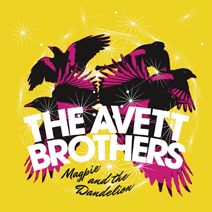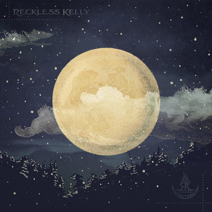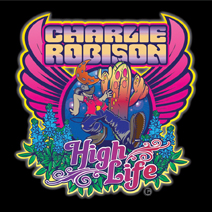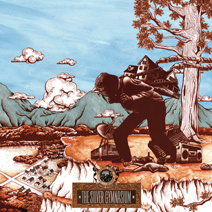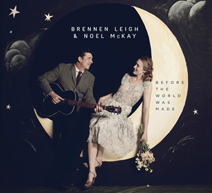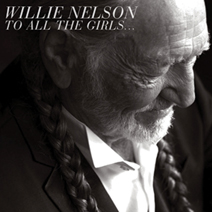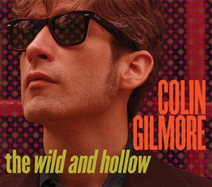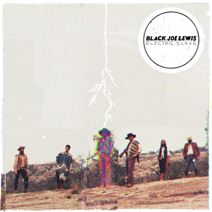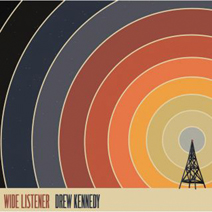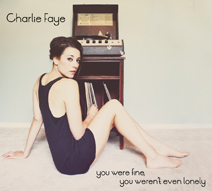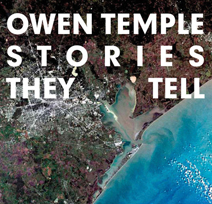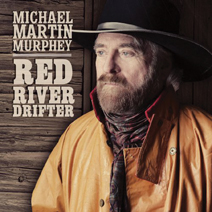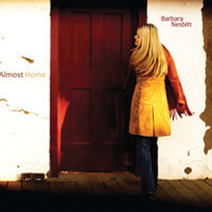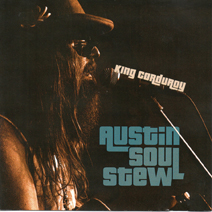 |
|---|

|
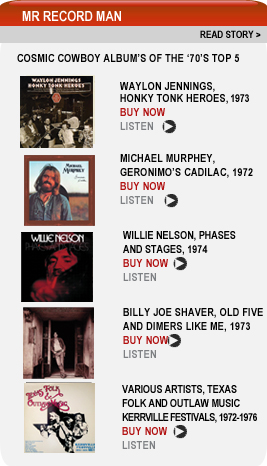
REVIEWS |
|---|
The first single from the Avett Brothers’ new album is called “Another is Waiting.” If they trafficked in ironic witticisms, that title might induce a nudge-nudge, wink-wink, it so accurately describes the circumstances behind Magpie and the Dandelion — the Avetts and producer Rick Rubin recorded so much material for their last album, The Carpenter, that another literally was waiting. But the Avetts don’t dwell in that house. They don’t resort to punny wordplay or sarcastic commentary, suggestive double-enten-dres or anything remotely like chest-puffing boasts. No, Scott and Seth Avett and their bassist near-brother, Bob Crawford, dig far deeper, scraping away any layer that might keep a raw corner of their souls protected from exposure. They ask the hard questions and strive to find answers for the riddles that confound our lives — in the process, helping to define Americana and inspiring their Mumford & Sons pals (and others) along the way.
|
|
It wouldn’t be hard for an amateur anthologist to come up with sort of a shadow history of Reckless Kelly as a thoughtful, downbeat country-folk band, more Flying Burrito Brothers than Creedence and more akin to, say, Bruce Robison than Cody Canada. There are at least a couple of subtle, lyrical, and decidedly non-rocking gems tucked away on any given RK release, but on Long Night Moon, the band’s eighth studio album, that approach is nudged towards center stage. It’s got less punch but more weight than 2011’s Good Luck & True Love, with a couple of taut rockers in the mix (including the particularly bracing “I Can’t Stand It” and the breezy “Real Cool Hand”), but an overall autumnal, quietly restless feel befitting the title. The rambling but compelling title tune bookends the work with a welcome reprise slipped in as a penultimate track for those of us that still listen to whole albums, establishing a contemplative thread that seeps in around the edges of simple hooks like “Didn’t Mean to Break Your Heart” and “The Only Home I’ve Ever Known.” Chief songwriter and singer Willy Braun remains in control of his twangy, buzzy voice, with gravel around the edges but warmth at the center, rangy without being showy and dynamic while still giving the lyrics room to breathe. Really, there’s balance at work everywhere, keeping the rock tempo of “The Girl I Knew” down to earth with purring, close country harmonies, as well as giving the pensive “Be My Friend (In Real Life)” some electrifying David Abeyta guitar barbs to enliven an anti-tech sentiment that seems at home among songs that sound well-suited for a circle of particularly talented campfire pickers. By the time the big-sky sonics and yearning vocals of “Idaho” bring the whole thing to a close, it feels weary and resilient all at once — just like a veteran band that rarely leaves the road but, once in the studio, seldom fails to make the most of it.
|
|
CHARLIE ROBISON |
It seems every Texas singer-songwriter worth their salt will at one point in the careers do an entire album covering songs written by some of their favorite tunesmiths. We had Lyle Lovett’s Step Inside This House, Ray Wylie Hubbard’s Delirium Tremolos, and Slaid Cleaves’ Unsung. Shoot, even expatriate Okies like Cody Canada and the Departed did it with their This is Indian Land hosanna to Red Dirt royalty. And now, with High Life, Charlie Robison weighs in with his own installment in the songs-that-ain’t-his-own cannon. Robison doesn’t have to search too far for top-shelf sources, of course; one-third of the album’s nine songs come from those he’s shared a few Thanksgivings with. In addition to borrowing brother Bruce’s “Brand New Me,” he tries on little sister Robyn Ludwick’s sumptuous “Monte Carlo” and “Out of These Blues.” He also reaches back to his early influences from the late ’60s and early ’70s, with Dylan’s “When I Paint My Masterpiece” and The Band’s “Look Out Cleveland,” which sparkles in the hands of this Lone Star roadhouse rocker who really means it when he sings classic lines like, “Look out Houston, there’ll be thunder on the hill, bye-bye baby, doncha lie so still.” Not surprisingly, his spirited Doug Sahm cover (“Nuevo Laredo”), Kinky Friedman’s “Wild Man from Borneo” and Ry Cooder’s border-flavored “The Girls from Texas” are all right in Robison’s ballpark, too. In fact, High Life plays so much like a “regular” Charlie Robison album — and a really good one, to boot — that fans not in on the covers aspect of it will likely be surprised to learn that these gems didn’t spring from the Bandera cowboy’s own creative juices. — D.C. BLOOM |
SARAH JAROSZ
|
Even as a teen, Sarah Jarosz seemed preternaturally mature and self-assured. But with her ascent into adulthood, the Wimberley native has reached a new level of confidence, and it permeates every gorgeous note of this album. Her lyrics are even more literate; her singing even more nuanced; and her arrangements reveal the sophistication she gained during her just-completed New England Conservatory of Music studies. “Over the Edge,” co-written by Jedd Hughes (who contributes harmonies and guitar) is an elegant, intricately embroidered work of seamless beauty, featuring Dan Dugmore’s lap steel slurries and Eric Darken’s gentle percussion alongside Jarosz’s octave mandolin. On the title tune, bow work by bandmates Nathanial Smith (cello) and Alex Hargreaves (violin), delivers the perfect counterpoint to her vocals and Aoife O’Donovan’s harmonies. Accompanied only by Smith’s cello on Dylan’s “Simple Twist of Fate,” Jarosz turns it into a sultry near-torch song, spare and beguiling, with phrasing that reveals her extensive jazz studies. On “Mile on the Moon,” another Hughes co-write, her alto resonates wonderfully against various instruments, including accordion. She turns Joanna Newsom’s “The Book of Right-On” into a playful bit of plucked and pizzicato interplay. She hands the mandolin to Chris Thile and picks up a banjo for “Fuel the Fire,” the only track here that exposes her bluegrass roots. She hasn’t forsaken them, but, like Elvis Costello, Jarosz has the potential to go in any direction she wants. Her continued evolution should be fascinating to behold. — LYNNE MARGOLIS |
OKKERVIL RIVER
|
Will Sheff of Austin’s Okkervil River has never made being an artist sound fun. Lyrical reference points over the years have included Tim Hardin and John Berryman, and frankly, neither of their stories ended well. And where the Beach Boys made “Sloop John B”’s narrator sound radiantly disgruntled, Sheff sang the song’s lines about feeling broken with anguish and resignation. He didn’t want to go home, he needed to go home. So Sheff went home. He revisited the New Hampshire town where he grew up and came back with songs. The Silver Gymnasium is a reminder that the best albums aren’t just a record of a creative entity from a fixed place in time; they’re part of a continuum. Okkervil’s last album, I Am Very Far, concerned itself with endings. The Silver Gymnasium is more concerned with beginnings — but to call it nostalgic does the album a disservice. The stakes are high on Gymnasium, only this time they’re informed by the urgency of youth, not the madness of creativity. “If you want to stop our ‘thing,’” Sheff sings, “you’ll stop my heart.” The result isn’t a romance with the past, but rather a look at the past as something irretrievable. Sheff hasn’t done an about face and gone soft; he’s still a guy in love with words, who turns them into hard songs. This is just his portrait of himself as an artist as a young man. — ANDREW DANSBY |
BRENNEN LEIGH & NOEL McKAY
|
Cute musical couples love to make cute songs of love together. One supposes it’s dang hard for ’em not to do so, particularly when they’re both crack songwriters whose cow-country crooning blends together like Bar, B and Q. The dozen songs on Brennen Leigh and Noel McKay’s Before the World Was Made are a rosy bouqet that even those who may not be all googly-eyed romantic at the moment will be heart pressed (yeah, that was intentional) not to find enchanting and engaging. The tandem penned the clever “Let’s Go to Lubbock on Vacation,” about a twosome who figure a visit to West Texas may be just the thing to test the strength of their bond. It may not get Leigh and McKay invited to play at the Buddy Holly Center anytime soon, but it’s certain to play for laughs elsewhere in Texas (“Come on, it isn’t really that bad, is it?” she sings, to which he responds, “A place to live, but maybe not to visit.”) Other highlights on this Gurf Morlix-produced project include “Great Big Oldsmobile,” a song of McKay’s that speaks not only to the big old old-person car they’ll drive well into their golden years, but offers a hopeful vote of confidence in Viagra’s staying power; and “Be My Ball and Chain,” a series of heartfelt and slice-of-everyday-life promises the pair makes as a co-proposal of sorts: “I’m so tired of being lonely, won’t ya be my ball and chain?” |
WILLIE NELSON |
Willie Nelson loves his duets and loves the ladies. But as with many of his collaborations, the results on his latest, To All the Girls …, are a very mixed bag. The most satisfying surprise among the 18 tracks here is the meditative reading of the John Fogerty classic, “Have You Ever Seen the Rain,” in which Willie’s daughter Paula delivers her verses and counterpoints her father on the choruses with skillful aplomb. That highlight is matched in quality and musical interest by the bluesy embers of “Grandma’s Hands,” with Mavis Staples, as well as the spritely honky-tonk of “After the Fire is Gone,” on which Tina Rose (Leon Russell’s daughter) stirs Willie’s singing with her sexy strut. The Texicali lilt of “No Mas Amor” is another keeper, thanks to Alison Krauss’ soaring, multi-tracked vocals, and the duets with Rosanne Cash, Emmylou Harris, and Norah Jones are all predictably good. But there’s also a handful of just not-very-special numbers with very special talents like Dolly Parton, Miranda Lambert, and Loretta Lynn, proving that chemistry is not always a given even when the pairings sound good in theory. Throw in some real duds, like the nervously antic version of “Bloody Mary Morning” with a hammy Wynonna, along with such soapy mediocrities as “Always on My Mind” with Carrie Underwood and “Far Away Places” with Sheryl Crow, and you’re left with a collection best cherry picked with caution rather than swallowed whole. To All the Girls … is a reminder that, just because Willie seems game for singing with just about anybody (and at this point in his career, pretty much has), he could stand to be a little more choosy. — ROB PATTERSON |
COLIN GILMORE
|
Colin Gilmore may come from Flatlander stock, but the dominant Lubbock gene in his musical DNA doesn’t come from daddy Jimmie Dale. Sure, there are more than a few chips off the old folksy-country block embedded in Colin’s songs, and now and again even a hint of his father’s distinctive nasal pitch and Zen-poet lyricism. But the quality that shines brightest in the younger Gilmore’s music is his uncanny knack for effortlessly channeling the most indelibly exuberant pop melodies this side of Buddy Holly. And it’s not just that they’re catchy, either (though that’s a given): it’s the way the best of them soar and tug at the same time, conveying all the rush of a giddy heart freefalling into love. That’s certainly the measure of the aptly titled “Feel Like Falling,” the immediate standout on Gilmore’s third album, but you feel it in “Only Real to Me” and plenty of other songs here, too. Even the more meditative tracks (like “Wake Me in the Night”) are touched with an air of stirring beauty. The credits on the album list a small army of different players, including notables like Amanda Shires, Will Sexton, and Tony Scalzo and Joey Shuffield of Fastball fame, but make no mistake: Colin Gilmore and his otherworldly melodies alone are reason enough to rave on (and on) about The Wild and Hollow. — RICHARD SKANSE
|
BLACK JOE LEWIS
|
With Electric Slave, Austin’s Black Joe Lewis and his gang turn in another smoking 11-track salvo that continues their explorations of the confluence of blues, rock, funk and soul. On this outing they still display their impressive chops, but the emphasis is on the grinding, dirty excitement the band generates onstage. The arrangements are paired down to the basics, the band’s bedrock rhythms and Lewis’ powerful vocals, and played with an unruly feel that blends ’60s garage-band attitude with scorching punk-rock intensity. Producers Stuart Sikes (White Stripes, Cat Power) and John Congleton (Explosions in the Sky, Okkervil River) keep Lewis’ vocals buried in the mix, where their gruff, untamed quality perfectly compliments the sweat-splattered energy the band churns out on every track. The album opens with the gritty, fuzz-drenched metallic blues of “Skulldiggin’,” a tune that sounds like Howlin’ Wolf screaming along with Jimi Hendrix, and continues with “Young Girls,” a four-on-the-floor rocker with energy to spare and a throat-shredding vocal. A raw, scratching guitar battles a phat, funky bass on “Come to My Party,” suggesting a punk-rock James Brown tearing down the house, while “Vampire” rides a groove halfway between T-Rex and T-Bone Walker. — J. POET |
Brandon Rhyder
|
Brandon Rhyder, quite simply, is a damn-good singer. That alone is enough to set him apart on a scene where the first half of the singer-songwriter equation often seems like an afterthought. His voice is exceptionally pure: no grit, no rasp, no drawl — just flat-out golden tones. With That’s Just Me, his first album in four years, Rhyder teams up with co-producer Matt Powell to craft an almost seamless collection of tunes that play rough then reflectively pull back in appropriate fashion, but with the vocals always up front where they belong. There are a couple of missteps: “Undercover Lover” is impossible to take serious due to its silly title and pseudo soft-jazz arrangement; and both the Riders in the Sky-style “Haggard” and the title track suffer from a somewhat generic slice-of-life monotony that fails to deliver much in the way of original insight. But there’s salvation in “Let Him,” an elegantly sincere ode to Rhyder’s spirituality that shows strength in stillness. “Hell’s Gate,” a co-write with Josh Abbott about the fires that have ravaged Texas in recent years, uses that same lyrical sincerity to hammer home a point without bludgeoning. And the terrific “Richest Poor People” is a laid-back folk song that the name-checked Walt Wilkins would be proud to call his own. — KELLY DEARMORE |
DREW KENNEDY
|
“I love hearing songs that are intelligent, thought provoking, and honest,” offers Drew Kennedy in his self-penned bio on his website. He writes songs to match, too, reliably turning out albums like Wide Listener (his sixth) that demand and reward acute attention to every word. This is very much a sit back (or lay down) and listen kind of record, impeccably played and sung (both by Kennedy, a dead ringer at times for Bruce Robison, and harmony helpers Kelley Mickwee and Brandy Zdan) and filled with languid melodies more comfortable than outright catchy. Still, pretty much every track here is a sleeping beauty akin to the patient desert succulent that inspired the exquisite “Rose of Jericho” (one of two songs Kennedy co-wrote with Lori McKenna). And when Kennedy does pick up the tempo a bit, as on the opening “Age of Color” and “Love on the Highway,” the effect is genuinely refreshing. The biggest surprise of all, though, comes with “Jesus Can See You,” coiled like a snake at the heart of the record and striking with an out-of-nowhere guitar solo as loaded with bitter venom as the song’s gotcha lyric: “Jesus can see you/breaking my heart.” It’s a jarring (but not unwelcome) twist in the middle of an otherwise gently measured and deeply reflective record, but like every other song on Wide Listener, it rings honest and true of heart.
— RICHARD SKANSE |
CHARLIE FAYE
|
The wistfulness permeating — actually, dominating — the jazz-inflected soul-pop of Charlie Faye’s latest album comes from her then-fracturing relationship with guitarist/co-writer Will Sexton, which must have cast a cloud over their recording sessions even though they didn’t split till afterward. Still, awareness of the situation makes the music even more poignant — particularly for listeners who knew them as a couple. The fact that they still perform together is a testament to the strength of their bond — and a reason to invest in the catchy mid-tempo optimism of “Stone in the Road” and “What’s So Special,” which appears in two versions (one of which closes the album on a positive note). Fortunately, even the melancholy songs aren’t woe-is-me litanies; they’re personal, yet almost analytical, as if the act of creating them provided the therapy they needed to accept and move on. And Faye’s gorgeous voice, combined with Sexton’s sometimes shimmering, sometimes twangy guitars (and contributions by Greg Leisz, Andre Moran, and Chris Masterson) creates a mood that overrides all sorrow. Though lyrics and phrasing occasionally struggle against one another, these well-realized songs are fine, indeed. |
OWEN TEMPLE
|
Kerrville-born Owen Temple has been a mostly under-the-radar journeyman on the Texas songwriter scene for more than a decade now, debuting with his Lloyd Maines-produced General Store way back in 1997. He’s made a handful of assured and modestly successful records since then, and even demonstrated a keen sense of satirical humor channeling the legend of one “Gary Floater” alongside frequent running buddy and co-writer Adam Carroll. But Stories They Tell, his seventh album, is the one that should finally earn Temple a seat at the table next to the best Texas/Americana troubadours of his generation. He’s always had a great voice for the medium, but it’s never sounded better than it does here: as rich, warm and comforting as Don Williams and as dry, worn and wizened as Townes Van Zandt. The production, by Gabriel Rhodes, is equally earthy and inviting, leaving plenty of room for every instrument and note to breathe. But best of all are the songs. Every one of them is a keeper, but some — like the Temple/Carroll/A.J. Roach co-write “Johnson Grass,” a vivid and fairly balanced character study of a Kerrville-Folk-Fest-attending, long-hair-growing, post-presidency Lyndon B. Johnson — have the feel of instant classics. In the terrific “Make Something,” a Ray Wylie Hubbard-worthy call to creative arms, Temple makes his go-for-broke intentions patently clear: “If you want to live forever, better make something, man.” With Stories They Tell, this man has just made the best record of his career. — RICHARD SKANSE |
NEKO CASE
|
Few things are more delightful and satisfying than a musical artist that arrives full of promise and then even exceeds expectations. That’s exactly what Neko Case has done time and again over her previous six albums; now, on lucky number seven, she takes her greatest and most assured leap forward as a singer, songwriter and rather ingenious and ever-more distinctive musical creator. She has by now left the reductive “alternative country” tag in the dust, even if she travels back to old-as-the-hills Appalachian forms with the ethereal electric/acoustic mix of “Calling Card” and the banjo-driven and vocal-harmony-laced string-band reel “Magpie to the Morning” (one of four extra songs included on the deluxe edition of the album). Like cousins Calexico (whose Joey Burns and Jon Convertino are among Case’s collaborators here), she’s forging a sophisticated modernist roots sound that transcends genre, as on the swirling storm of melody and rhythm with Dada-ist touches that is “Bracing For Sunday.” Case rocks fiercely through the declarative irony of “Man,” weaves a sumptuous a capella vocal tapestry on “Almost Midnight, Honolulu,” and builds a vigorous tour de force on the closing “Ragtime.” She also writes highly original songs laced with stunning wordplay, even when it’s a line like, “Blah blah blah, blah blah blah, we talk about, oh-oh-oh-ho.” To say that this smart and inventive album, so rich with heart and vision, is masterful implies that yes, it is something of a masterpiece, every track a distinctively different gem. But what’s best of all is the promise that, given the trajectory of Case’s growth, there’s more than likely even more glories to come. — ROB PATTERSON |
MICHAEL MARTIN MURPHEY
|
In his first batch of new songs in far too long, Michael Martin Murphey not just returns to the Lone Star singer-songwriter form that launched his artistic journey, but also draws from all the musical points on his compass to reassert and in a way summarize his mastery. Collaborating with co-producers Ryan Murphey (his son) and guitar wiz Pat Flynn on the material, he rides high across a vivid Western landscape from the zesty, banjo-driven reel of “Peaceful Country” to the cinematic shower of melody in a “Mountain Storm,” his crackling, high lonesome tenor enriching it all with a sincere and never saccharine sweetness. The double if not triple entendre of “Faded Blues” is Murphey at his most alluring, he’s delightfully fun and cheeky trading vocals with Pauline Reese on the cowboy zen of “Shake It Off,” and proves himself yet again a gifted old-school musical sophisticate on the lovely delicacy of “Unfinished Symphony.” Red River Drifter is a welcome reminder that Murphey is a Texas musical icon who stands head and shoulders with this state’s finest talents. — ROB PATTERSON |
BARBARA NESBITT
|
When she’s not knocking back shots of harmonic hooch as one of Austin’s Whiskey Sisters, Barbara Nesbitt serves up a special blend of singer-songwriter fare that is as warm and intoxicating as anything this side of Emmylou Harris and Kasey Chambers. On Almost Home, the flaxen-haired Georgia native’s third solo release, Nesbitt demonstrates a keen understanding that the job of a singer-songwriter is to give a compelling voice to interesting lyrics and universal themes. And boy, does she ever. Hers is a voice of passion and veracity, sharing resolute songs of assurance and candor. She expertly masters the vocal balancing act between optimism and despair on “Like a Good Girl,” a song about longing to repair a soured relationship while honestly admitting that her goods may be a tad too badly damaged to pull it off. On the album’s friskiest track, “Never Been in Love,” Nesbitt goes all coquettish in explaining the dearth of sappy love songs in her repertoire with a series of less-than-amorous admissions: “I’ve been a hippie and I’ve been a punk/I’ve smelled like roses and I’ve stunk like a skunk/I kiss girls, but only when I’m drunk/and I’ve never been in love.” But it’s on tracks like “Graceless” and “Dancing on a Trap Door” where Nesbitt truly unleashes those robust pipes of hers that can convey such heartache and hopefulness — and give the listener that peaceful, easy feeling that this is one Austin sister you’ll want to hear a lot more from. — D.C. BLOOM |
KYLE PARK
|
The current generation (hell, make it every generation) of Texas songwriters can more or less be divided into two camps: those aspiring to the for-the-sake-of-the-song gold standard of Van Zandt, Clark, Shaver and Co., and those obviously gunning for frat and sorority crowd-pleasing hits, the more “Drunk Girls” in the crowd singing along to songs like “She’s Like Texas,” the better. Stylistically, Kyle Park definitely leans more toward to the later camp than the former; but based on the considerable amiable charms and genuine talent on display throughout Beggin’ for More, he stands head and shoulders above the competition. On slick and catchy songs like the surging opener “The Night is Young” and the sweeping, bittersweet “True Love,” Park sounds as groomed and ready for modern mainstream country radio as anyone this side of Keith Urban, but at heart he’s clearly a traditionalist in the George Strait mold. That much comes shining through not only via the pure-country feel of standouts like the winning title track and “Fit for the King,” but in the tasteful playing and arrangements throughout the album (which Park produced himself, smartly picking real-deal studio players like Cindy Cashdollar on dobro, Tommy Detamore on steel guitar, and Asleep at the Wheel’s Larry Franklin on fiddle). In their hands, not to mention with Park’s assured delivery and aw-shucks likability, even “Turn That Crown Upside Down,” a spot-the-clichés drinking ditty co-written with Josh Abbott and Rich O’Toole, plays out like more of a legit honky-tonk anthem than ballcap bait. Ditto “Tagged,” a silly but disarmingly fun, tongue-in-cheek lament on the ever-present camera eye of social media. It may not be songwriter’s songwriter top-shelf stuff, but modern country music — especially the Texas variety — could stand a lot more of what Park is pouring on Beggin’ for More. — RICHARD SKANSE |
KING CORDUROY
|
Genuine soul music in the classic mode is not one of the sounds that Austin is generally known for, but Alabama-reared singer-songwriter Kurt McMahan — aka King Corduroy — proves that the Capital City’s players can righteously summon up the spirit of Muscle Shoals and Stax/Volt in their heyday with this tasty and satisfying stew. With a supple growl of a voice and hirsute look that resembles Leon Russell spliced with Dr. John, he has a dead aim for those deliciously deep ’60s R&B grooves and a knack for penning alluring songs that echo the best of the past yet still feel as fresh as tomorrow’s sunrise. All the sweet soul goods are here, such as rollicking horns on the funky Crescent City flavored opener, “What I Need,” call-and-response background vocals throughout, and dynamic duets with Emily Gimble (on the swingin’ “Hagman’s Despair”) and Kate Priestley (on the organ/electric piano-laced lament “Ponderosa Blues”). Austin Soul Stew also takes a dip into the delta blues via the sharp harp and guitar solo flights on “The Ballad of Douglas McAdams.” All told, this King and his court do a princely job of giving a range of real Southern soul styles an exemplary representation of the genre’s eternal charms. — ROB PATTERSON |
